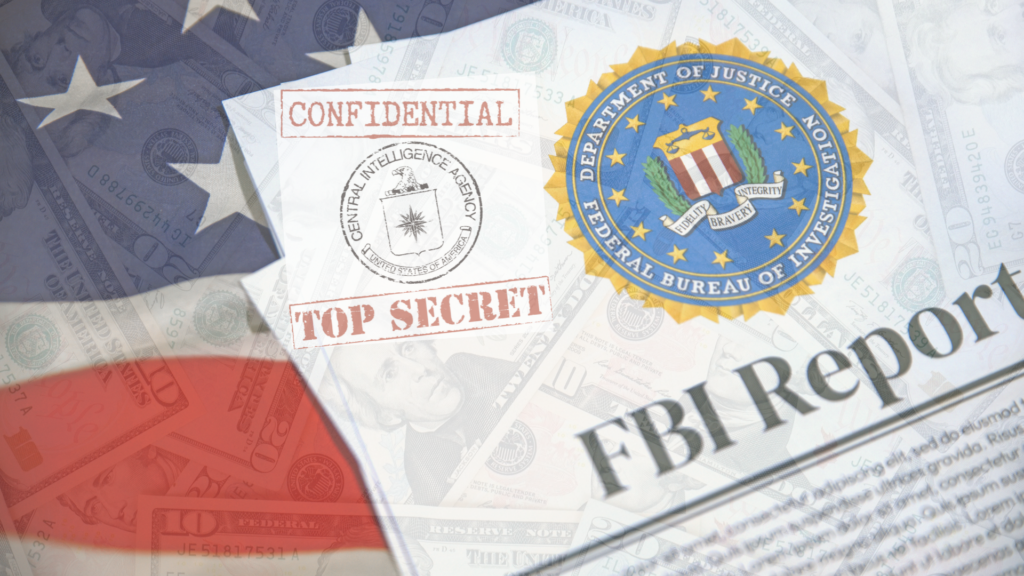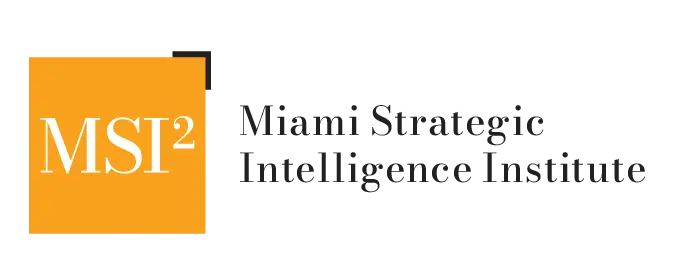25 Apr Sinister Deceptions: Dale Bendler’s Clandestine Operations in Miami and the National Security Fallout
By,
William Acosta, SME, MSI² & Jesús Daniel Romero, Co-Founder and Senior Fellow, MSI²
Dale Britt Bendler, a 68-year-old former CIA contractor from Miami, Florida, operated a web of clandestine activities that exploited the Cuban-American diaspora while jeopardizing U.S. national security.
On April 23, 2025, Bendler pleaded guilty to acting as an unregistered foreign agent and mishandling classified materials up to the SECRET//NOFORN level, as detailed in the U.S. Department of Justice (DOJ) plea agreement (U.S. Department of Justice, 2025a). His sinister operations in Miami, centered around his company ONE.61 LLC, targeted the diaspora through a “China Economic Warfare in Latin America” conference, potentially for financial gain. Featuring U.S. Congressman Carlos Giménez, a member of the House Select Committee on Strategic Competition between the United States and the Chinese Communist Party, the conference highlighted critical issues for the Cuban community—issues Bendler exploited under a deceptive guise (American Museum of the Cuban Diaspora, 2025). This article examines Bendler’s clandestine Miami operations, the severe damage from his classified breach, and Giménez’s role in countering China’s influence.
Clandestine Operations in Miami: Targeting the Cuban Diaspora
In Miami, a hub for the Cuban-American diaspora, Bendler operated ONE.61 Personal Protective Techniques, a veteran-owned LLC ostensibly offering cyber and urban safety training through referral-only services (ONE.61 Personal Protective Techniques, 2025). Beneath this facade, Bendler engaged in sinister activities, leveraging his CIA background to gain the trust of the diaspora, a community deeply invested in anti-communist causes due to Cuba’s history. The DOJ plea agreement reveals that from 2017 to 2020, Bendler conducted undisclosed lobbying for foreign nationals, earning hundreds of thousands of dollars, a pattern of deception that extended to his Miami operations (U.S. Department of Justice, 2025a).
Bendler organized the “China Economic Warfare in Latin America” conference, scheduled for May 1, 2025, at the American Museum of the Cuban Diaspora, co-sponsored by ONE.61 LLC, the museum, and Florida International University’s Adam Smith Center for Economic Freedom. The conference, canceled after his guilty plea, was a calculated move to exploit the diaspora’s concerns about China’s influence in Cuba and Latin America.
Its agenda included:
– 08:30–09:15: Welcome, remarks by Dale Bendler and Marcell Felipe.
– 09:15–10:00: “BRI and MSR, Supply Chains, and Tariffs” by Prof. Leland Lazarus.
– 10:15–11:00: “Critical Minerals” by Peter Chin and Lyle Effio.
– 11:15–12:00: Keynote by The Honorable Carlos Diaz-Rosillo.
– 12:00–13:00: Paella lunch by Carlos Galan.
– 12:30–13:00: Museum tour by Marcell Felipe.
– 13:00–13:45: “China and the Information Space in LATAM.”
– 14:00–14:45: “China in the Caribbean, Cuba and Venezuela” by Maria Werlau and Executive Miguel Cossio.
– 15:00–15:45: “China and Criminal Networks: fentanyl, human trafficking, money laundering.”
– Pending: Guest speaker, The Honorable U.S. Congressman Carlos Gimenez, China Subcommittee.
– 16:00: Second museum tour by Marcell Felipe.
– 18:00: Post-event cocktails at Dolores But You Can Call Me Lolita Restaurant, 1000 South Miami Ave, Brickell (cash bar) (American Museum of the Cuban Diaspora, 2025).
By featuring prominent figures like Carlos Diaz-Rosillo, a former Trump official, and Carlos Giménez, Bendler positioned the event as a legitimate platform, likely drawing diaspora interest. However, unverified claims suggest his motives were exploitative. Bendler may have solicited funds, sponsorships, or attendance fees under the pretense of advancing anti-China or anti-Castro agendas, potentially failing to deliver or misusing proceeds.
The Cuban diaspora, often targeted by scams due to its political passions, was a vulnerable mark for Bendler’s clandestine operations. While the DOJ plea agreement does not confirm a diaspora swindle, his history of unauthorized lobbying suggests a pattern of deceitful profiteering (U.S. Department of Justice, 2025a).

The National Security Breach: Damage from SECRET//NOFORN Disclosure
Beyond his Miami operations, Bendler’s actions inflicted serious harm on U.S. national security. The DOJ plea agreement details how he:
– Searched classified CIA systems for client-related information.
– Improperly stored and disclosed SECRET//NOFORN material, which prohibits dissemination to foreign entities.
– Lied to the CIA and FBI to conceal his misconduct (U.S. Department of Justice, 2025a).
Most alarmingly, classified material appeared in the possession of an allied foreign government under CIA surveillance, indicating unauthorized disclosure. The breach’s impacts are severe:
– Operational Disruption: SECRET//NOFORN material often includes intelligence methods or sources. Its disclosure risks forcing the CIA to abandon missions, reassign personnel, or sever ties with compromised sources, disrupting operations globally (U.S. Department of Justice, 2025b).
– Source Endangerment: If the material identified human intelligence sources, their safety could be at risk, hindering future recruitment.
– Diplomatic Fallout: The NOFORN designation prohibits sharing with allies. Its exposure erodes trust in U.S. intelligence-sharing agreements, potentially weakening coalitions (U.S. Department of Justice, 2025b).
– Long-Term Security Risks: Adversaries like Russia or China could gain secondary access through espionage, amplifying the damage. The breach signals to hostile nations that CIA insiders can be exploited, increasing future risks.
– Agency Morale and Reputation: Colleagues felt betrayed, and the scandal fuels adversarial propaganda portraying U.S. intelligence as corrupt (U.S. Department of Justice, 2025a).
The CIA terminated Bendler’s contract in September 2020, but the delay in addressing earlier suspicions exacerbated the damage. Bendler’s guilty plea on April 23, 2025, carries a maximum seven-year sentence, with sentencing set for July 16, 2025. He forfeited $85,000 of his earnings (U.S. Department of Justice, 2025a).
Carlos Giménez: Countering China’s Influence
U.S. Congressman Carlos Giménez, a pending speaker at Bendler’s conference, is a key figure on the House Select Committee on Strategic Competition between the United States and the Chinese Communist Party. Representing Florida’s 28th district, Giménez, a Cuban-born Republican, focuses on military, economic, and technological threats from China, particularly in Latin America. His work addresses China’s control of ports near the Panama Canal, spy bases in Cuba, and economic warfare through supply chain dominance. Legislative efforts like the Decoupling from Foreign Adversarial Battery Dependence Act and the Port Crane Security and Inspection Act of 2025 aim to counter China’s influence in critical infrastructure (House Select Committee on the CCP, 2025). Giménez also serves on the House Armed Services Committee and chairs the Homeland Security Subcommittee on Transportation and Maritime Security, tackling port security and supply chain vulnerabilities (U.S. House of Representatives, 2025).
Giménez’s involvement in the conference, alongside speakers like Carlos Diaz-Rosillo and Maria Werlau, underscores its relevance to the Cuban diaspora, which Bendler exploited. However, the committee’s focus on China as a singular threat can oversimplify global dynamics, often ignoring how U.S. policies contribute to tensions. Critics argue that decoupling measures risk economic fallout without addressing dependency’s root causes, though Giménez’s work remains central to U.S. strategy (Smith, 2025).
Critical Perspective: Unveiling the Deceptions
The DOJ plea agreement frames Bendler as a greedy rogue, but gaps raise questions. Why did the CIA delay action despite earlier suspicions? The secrecy around the foreign clients and compromised material fuels speculation about the breach’s full scope (U.S. Department of Justice, 2025a). Bendler’s clandestine operations in Miami reveal a calculated exploitation of the diaspora’s trust, though the lack of specific charges in the plea agreement leaves the swindle unverified. Giménez’s committee work, while critical, risks oversimplifying China’s role, potentially overlooking broader geopolitical complexities (Smith, 2025).
Lessons for National Security
Bendler’s actions demand reforms:
– Enhanced Oversight: Real-time audits of classified system access and stricter contractor vetting.
– Cultural Shift: Zero-tolerance policies for misuse of authority.
– Community Protection: Safeguards to prevent exploitation of vulnerable groups like the Cuban diaspora.
The breach and Bendler’s Miami operations warn of the risks posed by deceptive insiders.
Conclusion: A Call for Accountability
Dale Bendler’s sinister clandestine operations in Miami, exploiting the Cuban-American diaspora through a canceled China conference, reveal a pattern of deceit that compounded the serious damage from his SECRET//NOFORN breach. Carlos Giménez’s work on the Select Committee on China highlights the stakes of countering China’s influence, a cause Bendler manipulated for personal gain. As Bendler awaits sentencing, the CIA must strengthen defenses, and policymakers like Giménez must address global threats with nuance. Accountability and vigilance are essential to safeguard national security and vulnerable communities.
References
American Museum of the Cuban Diaspora. (2025). China Economic Warfare in Latin America Conference Flyer. Miami, FL: American Museum of the Cuban Diaspora.
House Select Committee on the CCP. (2025). About the Select Committee on the Chinese Communist Party. Retrieved from https://selectcommitteeontheccp.house.gov/about
ONE.61 Personal Protective Techniques. (2025). About Us. Retrieved from https://one61.com/about
Smith, J. (2025, March 15). The Risks of Decoupling: A Critical Look at U.S.-China Policy. Foreign Policy Analysis Journal, 12(3), 45–60.
U.S. Department of Justice. (2025a). Plea Agreement: United States v. Dale Britt Bendler. U.S. District Court for the Southern District of Florida.
U.S. Department of Justice. (2025b). Press Release: Former CIA Officer Pleads Guilty to Mishandling Classified Information. Retrieved from https://www.justice.gov/opa/pr/former-cia-officer-pleads-guilty-mishandling-classified-information
U.S. House of Representatives. (2025). Biography of Congressman Carlos Giménez. Retrieved from https://gimenez.house.gov/biography
